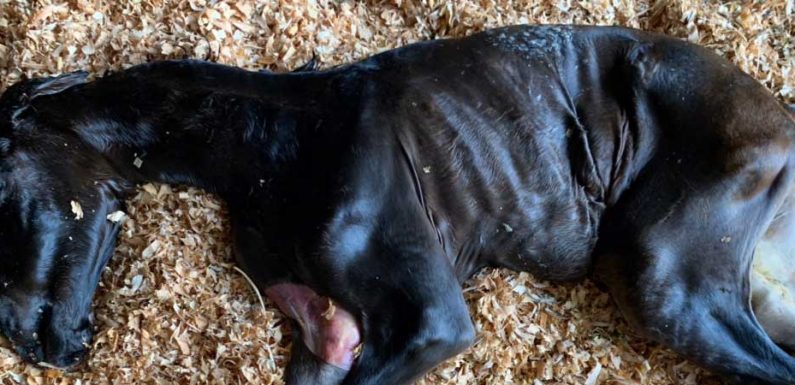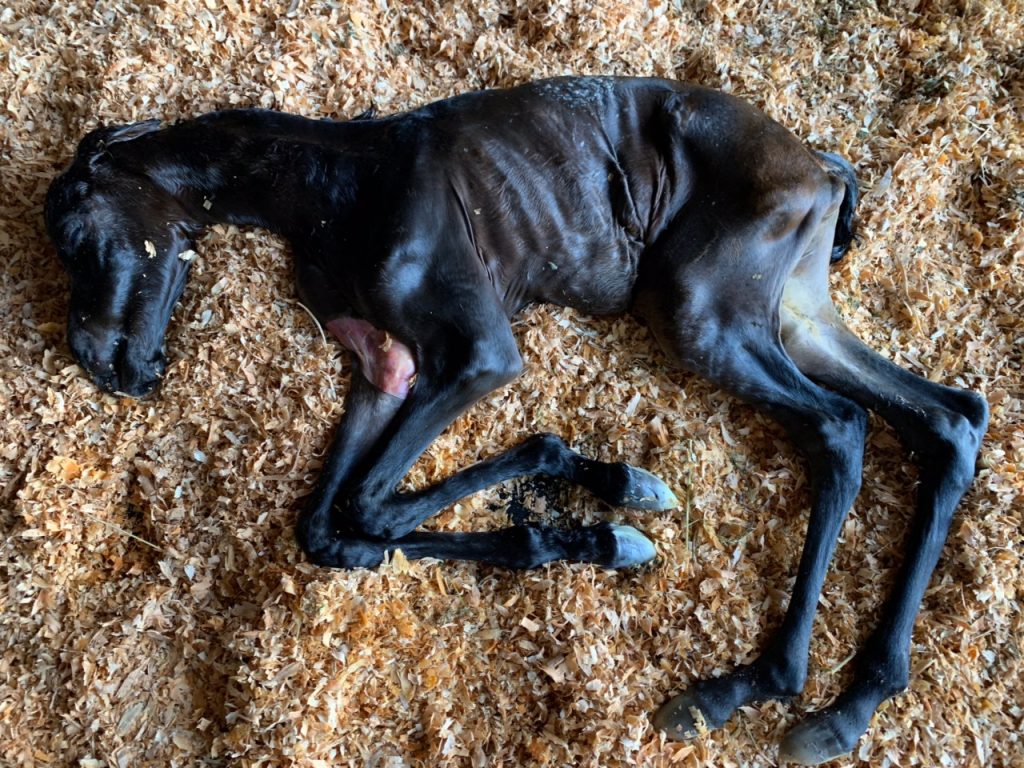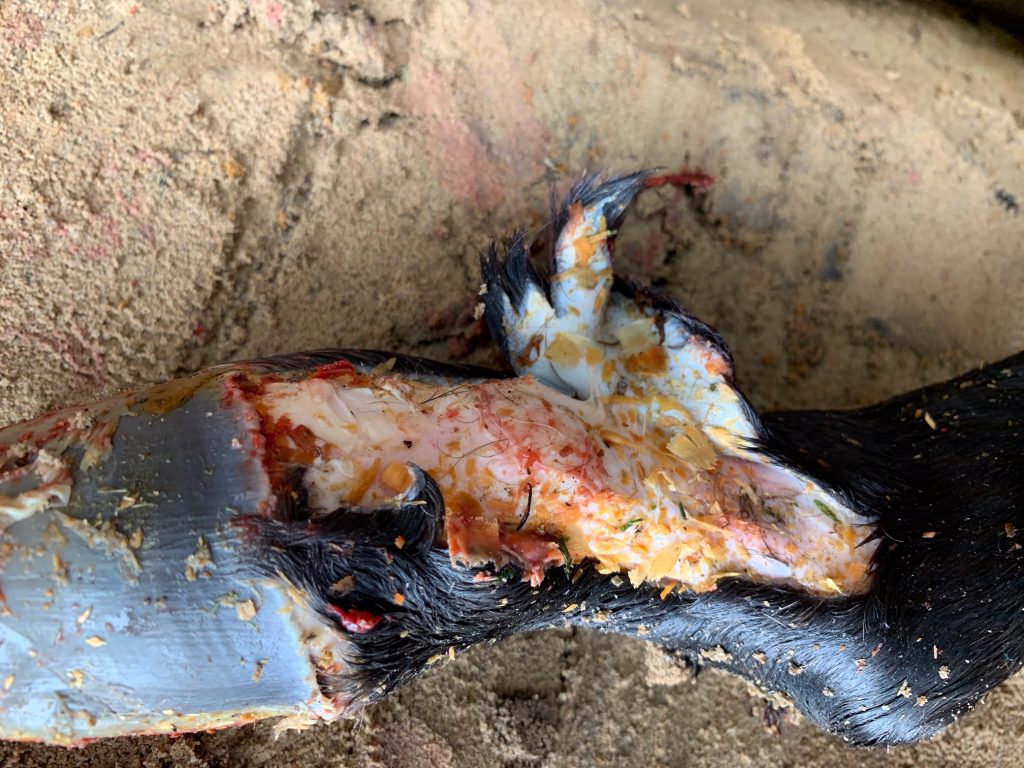
I am sorry to say that we have just seen a case of a Warmblood foal with fragile foal syndrome (FFS). The foal was born dead a few weeks short of full term. In addition to skin and mucous membranes that tore during delivery, the foal had a massive hemorrhage in the chest and abdominal cavities.

The owner of this foal has kindly allowed us to use these photographs to raise awareness of Fragile Foal Syndrome.
FFS is a genetic disorder that happens when collagen cross-linking by the LH1 gene does not occur, or occurs only at very low levels. Collagen cross-linking is vital in giving skin, blood vessels, tendons and other tissues their toughness. Foals with FFS have skin and mucous membranes that can easily split (see illustration) and be pulled away from the underlying tissue. Their tendons are lax too. Very few full-term foals are born with FFS, which suggests that most are lost at some point during pregnancy.

The split and peeling skin on this fetlock was photographed just prior to the foal being buried.
FFS occurs when a foal inherits two copies of the FFS gene. This can only happen when the foal gets one copy of the gene from its dam and one from its sire. The dam and sire (and all other horses with one copy of the FFS gene) are called FFS carriers.
A number of elite Warmblood and Sporthorse stallions and mares are FFS carriers. It is very unlikely that being a FFS carrier has a negative effect on performance.
Please avoid breeding foals with FFS. There are financial benefits, equine welfare benefits, and benefits to the welfare of our horse vets, who ideally shouldn’t have to help deliver a foal with its skin tearing in their hands.
Genetic testing easily and quickly identifies FFS carriers: we use hair follicle samples, and our turnaround time is 2-5 days from receiving your sample. You only need to do it once per horse. Genetics do not change with age.
FFS carriers have also been found in the Thoroughbred population in Australia and overseas.
Simply put, do not breed two FFS carriers together. It’s that easy. Carrier to clear – that’s fine. Clear to clear – also fine. Just don’t breed a FFS carrier to another FFS carrier. Please.
And let other breeders know about it too!